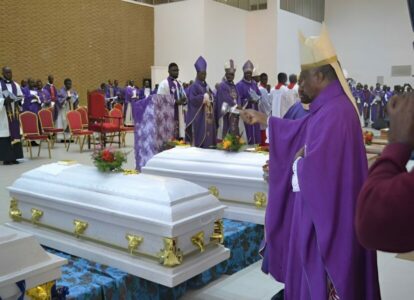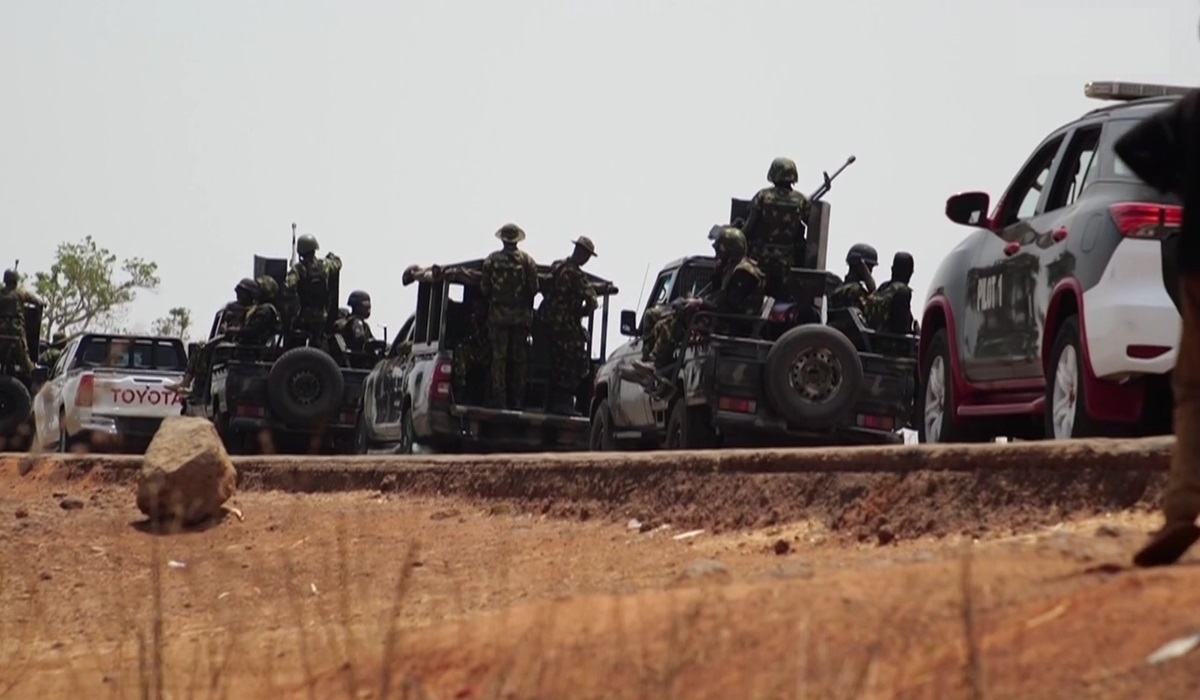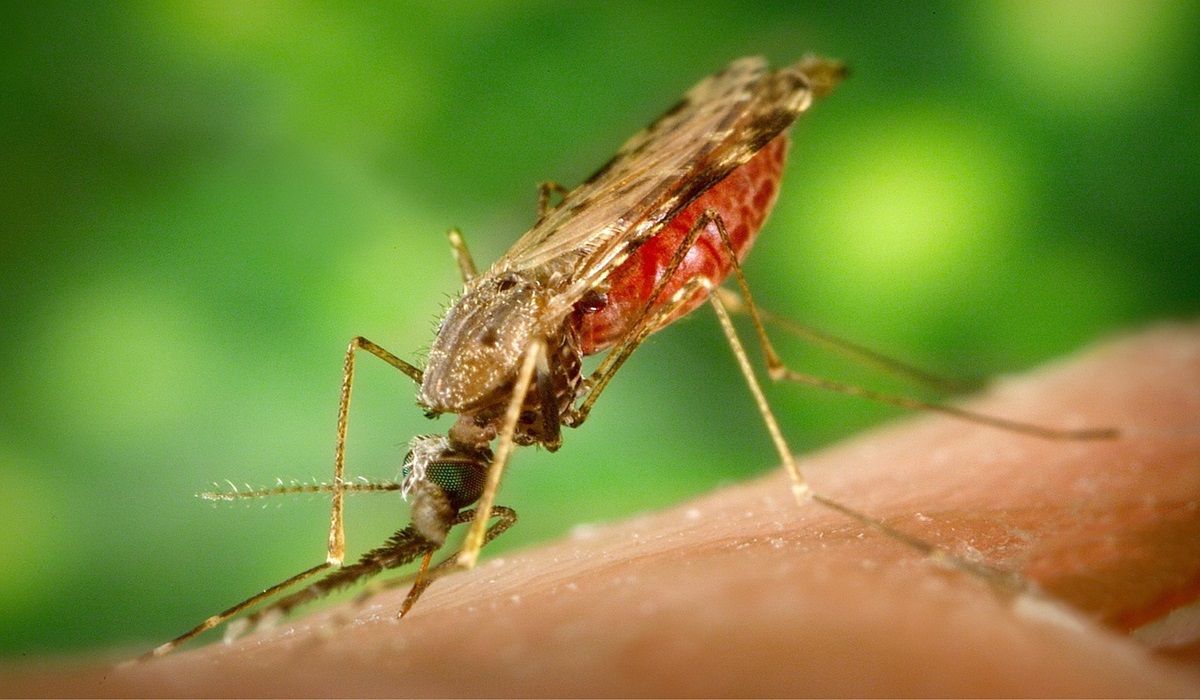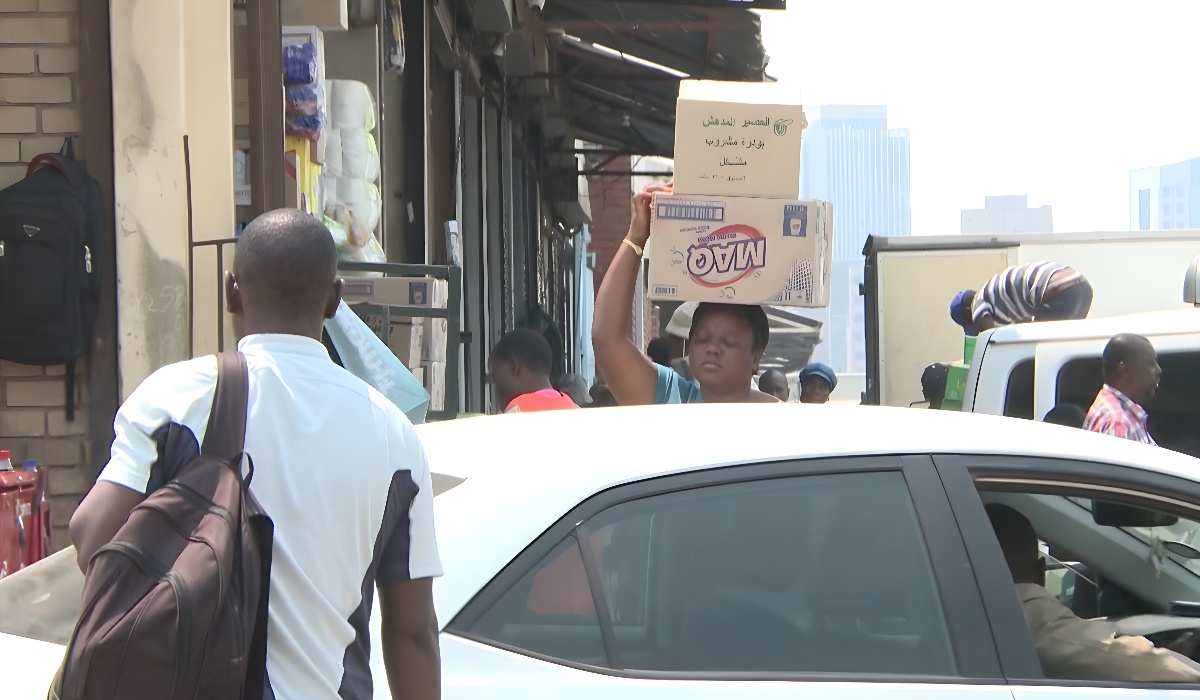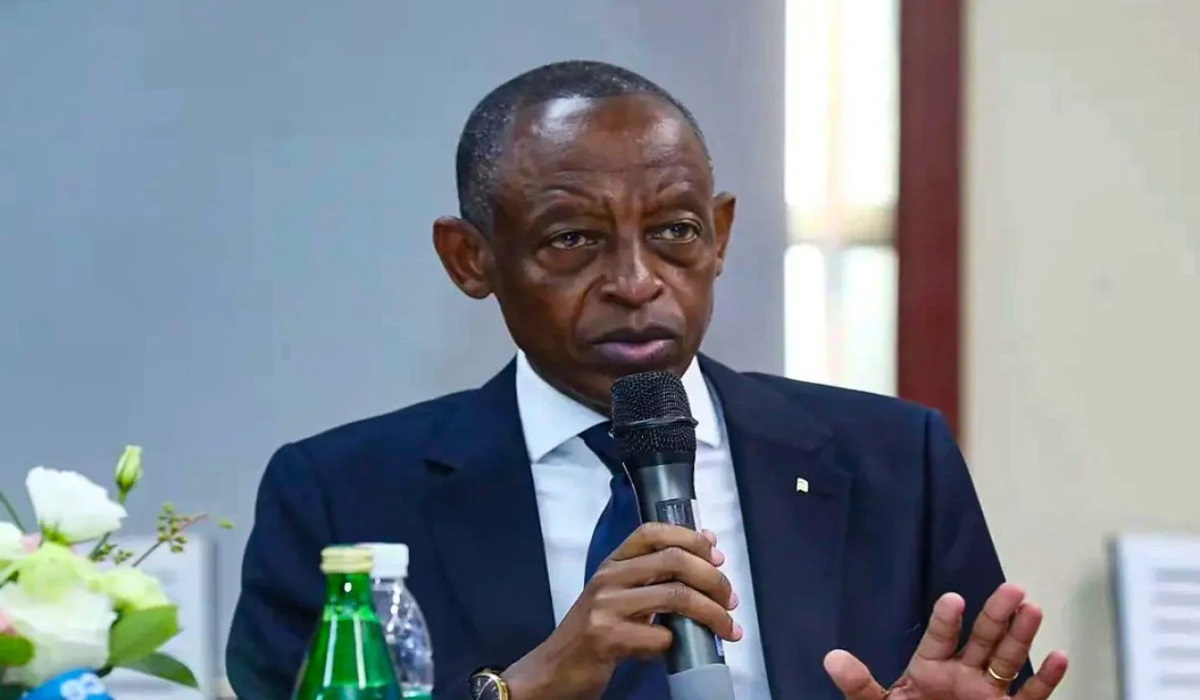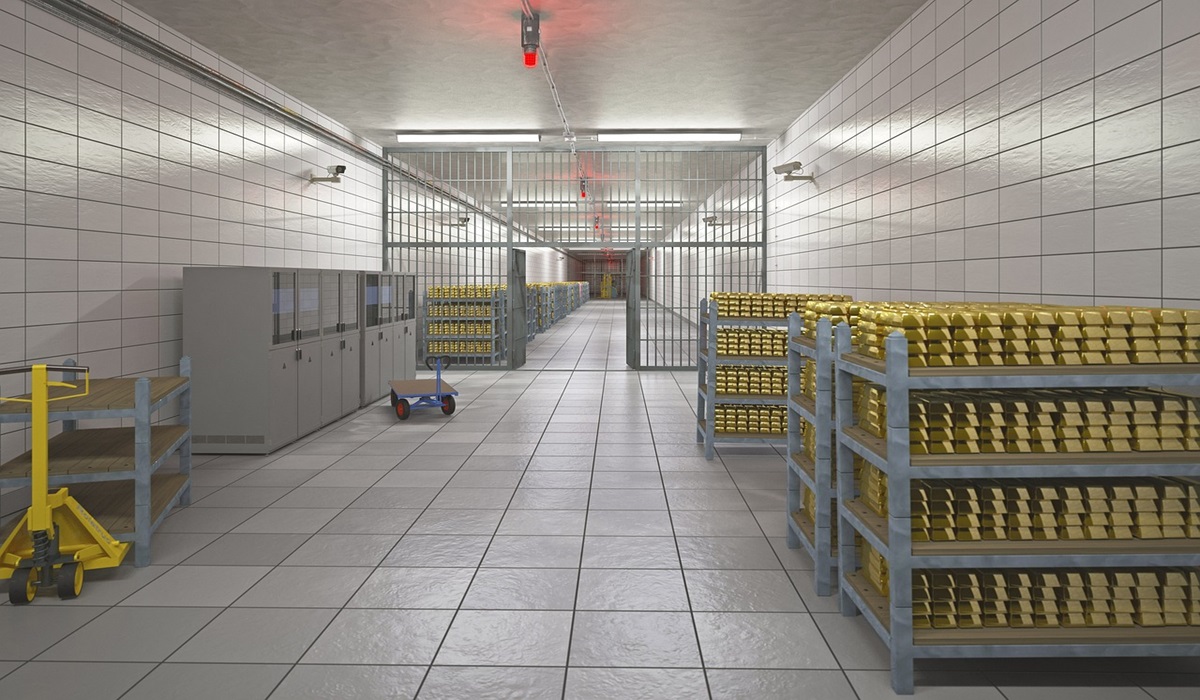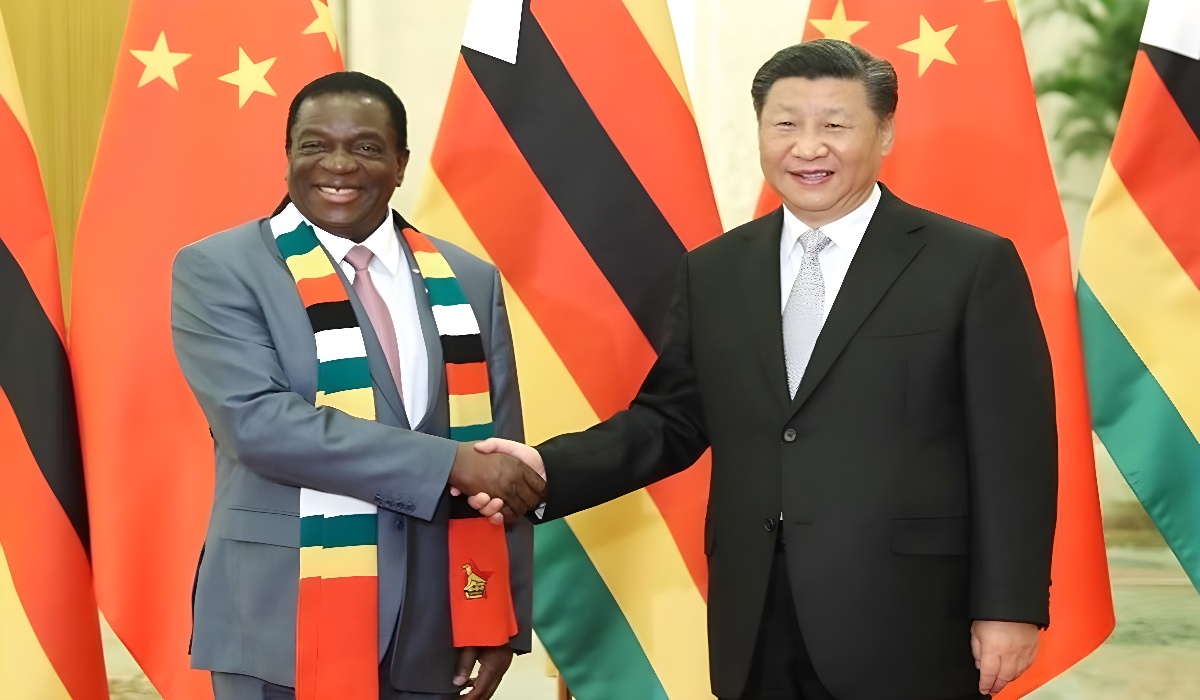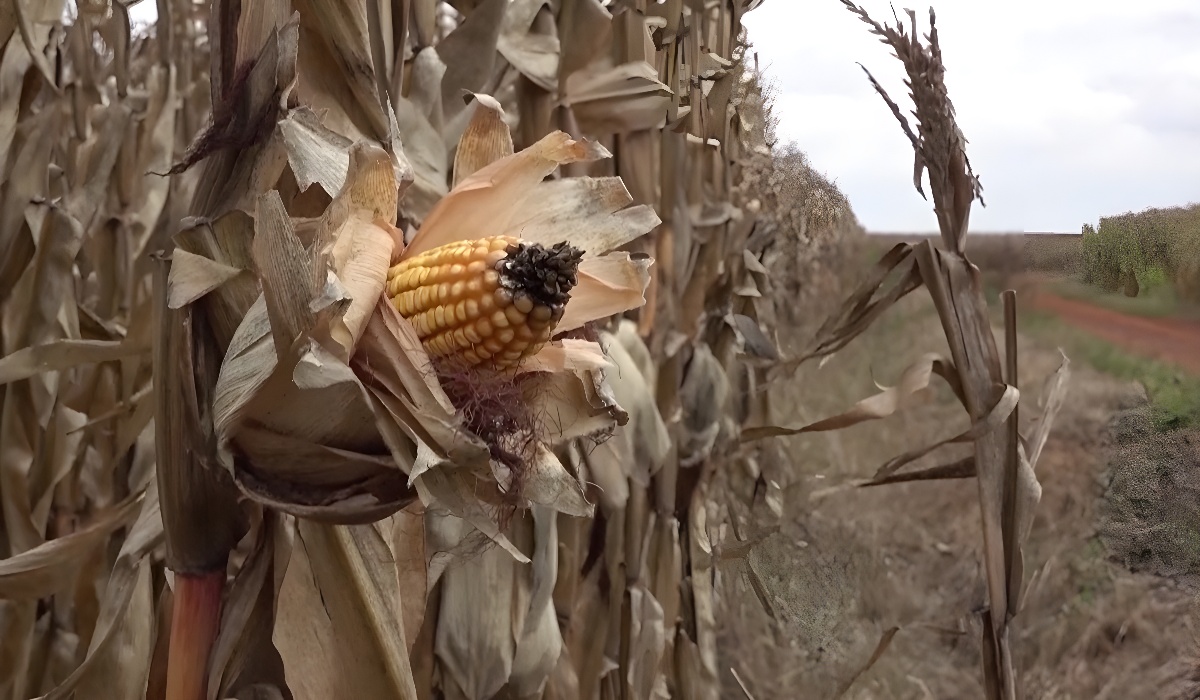Witnesses to a Massacre (II): The Dead and the Injured
“Something much more significant is being put to light…
Both the killer and the killed are victims.”—Seymour Hersh.
Steve Ogah continues his account of his visit to Owo town, Ondo State, Nigeria, in the aftermath of June 5, 2022, Pentecost Sunday terror attack at St.Francis Xavier Catholic Church. The first part is available here: https://www.thedailyscrumnews.com/2023/04/14/witnesses-to-a-massacre/
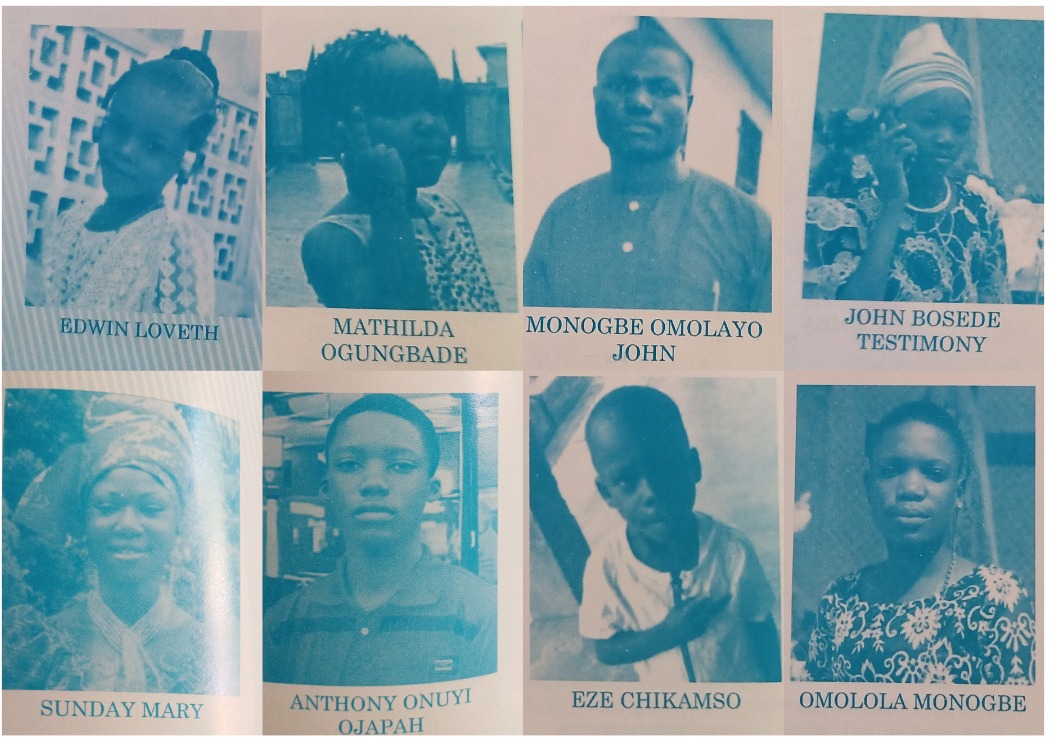
It was getting dark, and I had the urge to flee from Owo town after the traumatic images I had seen all day. I went to the garage at the Ikare Junction area after leaving the Federal Medical Center in Owo, where I met some survivors. My heart was heavy with sadness, and my bones were tired from walking the slightly uneven terrain of the medical grounds. There was no excitement in the air around me. I was also hungry and thirsty and had to ask Ola to point me to where I could get something decent to eat and grab a cold drink. I stood staring around with light beads of sweat on my temples, strains in my eyes, and a languid motion to my walk.
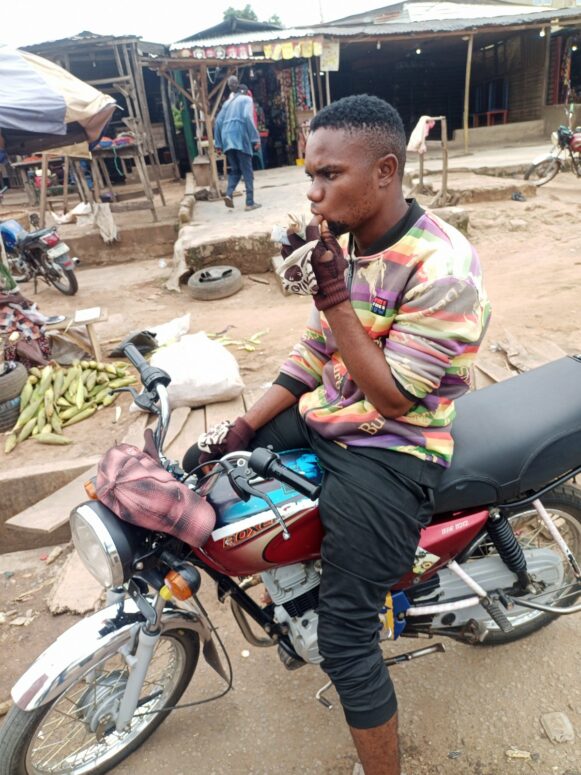
The motorcycle rider spoke to me in pidgin English. “Oga, finding somewhere to rest and eat will be better,” Ola said after seeing how emotionally chaotic I was. “We waste time for that Emure-Ile forest area. You don tire and e show for your eyes. Abeg, no kill yourself with work.” I agreed with what he had said and confessed to him that I hadn’t sat down for an authentic meal for the day. I told him I had been snacking instead.
We had come to the tail parts of our adventurous time together. But I had already taken to Ola and wished he would hang around me for more moments. I had also considered other places to visit and would return to Owo. I had to remind Ola not to fight his fellow motorcycle rider over his failed attempt to snatch me from him and rip me off. Ola said he had forgiven him. He said he wouldn’t have remembered the incident had I not brought it up. I was genuinely glad he had decided to be a kind, forgiving man with a heart full of love.
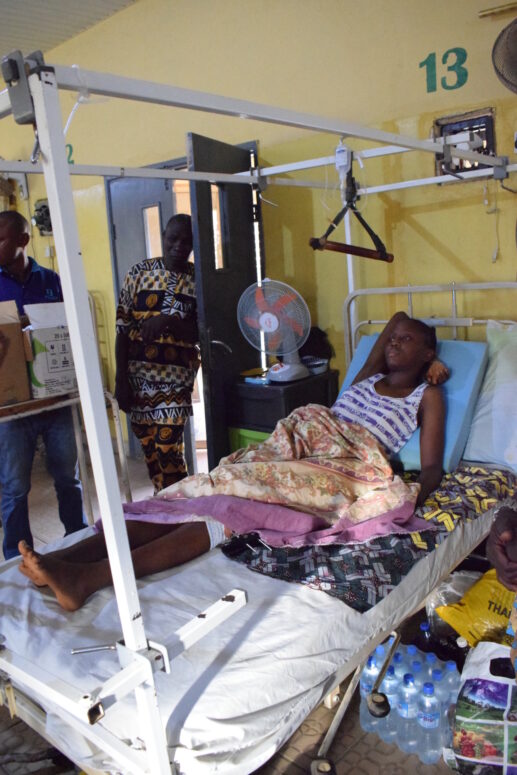
The First Victim
Ola and I rode along the quiet streets of Owo, and then I saw an ice cream seller on a bicycle, riding with a lively rhythm like one who had sold all his stock for the day. Sondoko crept into my mind. I needed his photo. He wasn’t referenced as the first fall guy in any report about the attack. But Mr. Aloysius, a parishioner at St. Francis, indicated he was the first man the terrorists shot at the Church’s gate.
“Is it still possible to find a photograph of Sondoko?”
“If we are lucky, we may meet some of my friends who have it on their phones. Kids loved him a lot.” Ola said. “There is hardly anyone who doesn’t know Sondoko around that Church area. He was the Town’s best ice cream man.”
“Great.”
“Should we turn back towards St. Francis?” Ola asked. “I am all yours for the day.”
I opposed the idea.
Hunger and Distress
We found a roadside eatery near a gathering of cars and a small gas station. I sat down to a plate of rice and two bottles of water. Ola rejected my offer of a plate of food and drinks. He sat close by while I busied myself, silencing the pangs of hunger in my stomach.
Images I had just seen at the hospital and Catholic Church kept flashing as I dug lamely into the bright white rice grains on the small round tea-brown china. The attendant at the eatery, a young woman with a smiling face, served me an oil-based spicy soup inside another plate.
Unpleasant voices also came back to me. I could hear the sad, slow voice of Donatus Awolor and that depressed tone of Mr. Aloysius. I could hear the silence of the Church hall and then hear the echo of our voices as I spoke with the Catechist. I heard distant cries amid the din of assault gunfire from heartless men bent on killing in the sacred space of God on an important feast day in Christianity. I hadn’t been there in the Church on the day of the massacre. However, I could still hear wailings and see recurring images I had seen in the media moments immediately after the brutal assault on innocent worshippers.
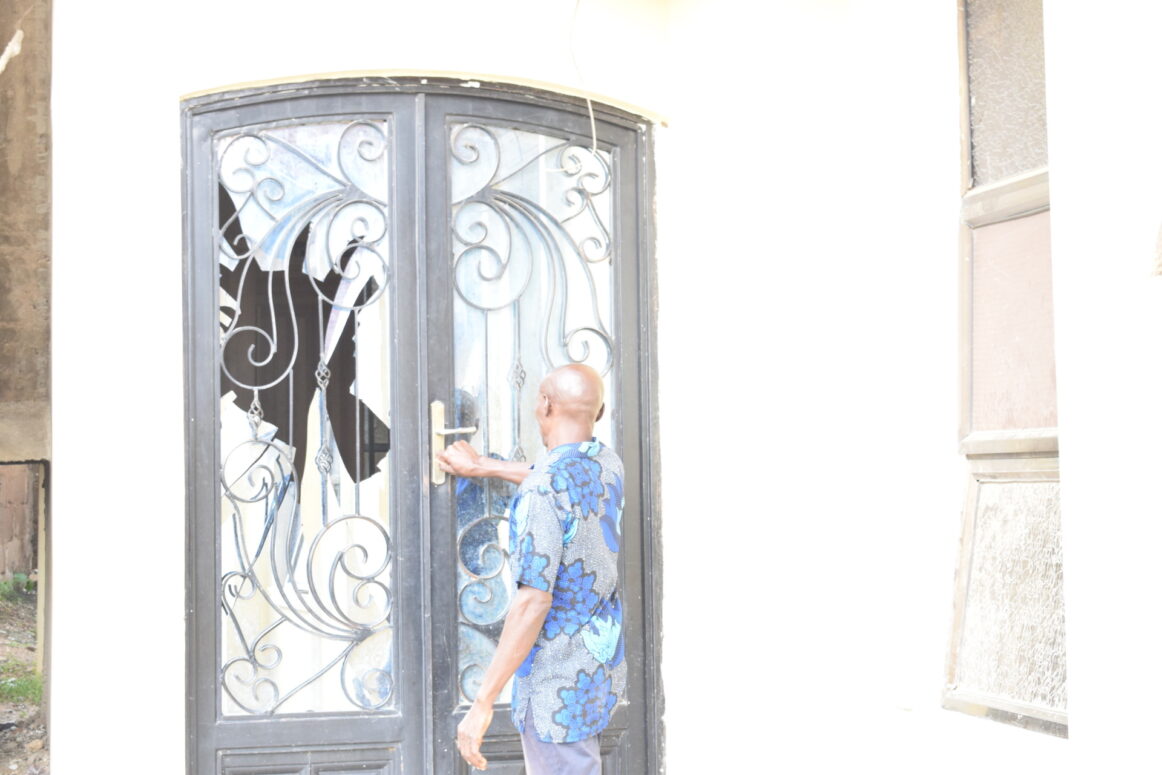
I could recollect the antiseptic and stinging smell from the orthopedic ward at the F.M.C. Most of the surviving victims at the hospital didn’t speak to me much. Still, I could hear voices of courage and pleas for help and comfort in their battles with pains and discomforts. I could see the woman who had lost both legs and tried to sit up and pose for a photograph with me. I saw the kid’s smile with the Holy Rosary around her neck as her younger sister sat close by watching a movie on a small Android phone screen, her young face full of life and innocence.
Monica Udeh had been in a corner at the right of the hall. The injured woman cheered up as I got close to her on the bed and gave words of courage and sentiments for a positive outlook toward life. I also heard the voice of the nurse on duty all over again. The caring health worker moved with slow and measured steps, pointing me around and telling me about the conditions of some of the patients, her tired eyes peering below her glasses as if to be sure of the identity of each patient.
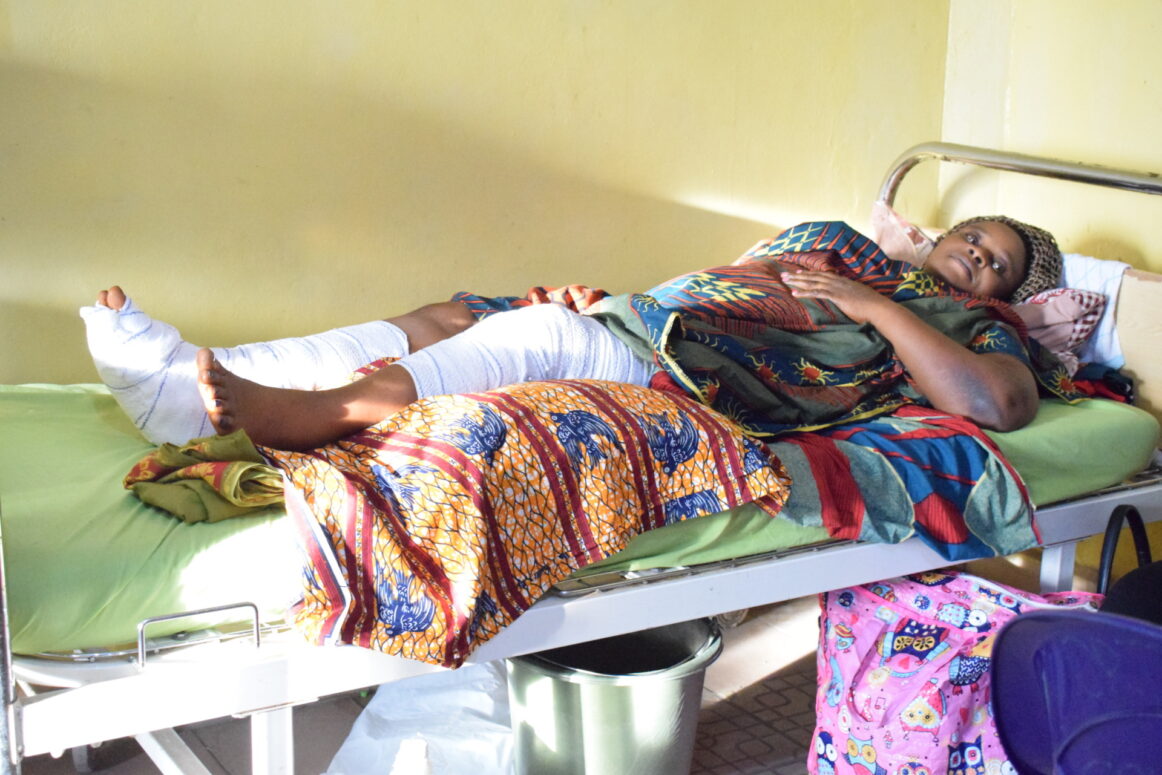
I needed the energy from the meal. But I couldn’t eat with the liveliness of one genuinely famished. The red stew over the grains looked like fresh red blood, and the spicy smell rising from the food was like the sting of antiseptic from the Church and hospital. I opened the second bottle of water and pushed the half-eaten plate aside. There was no need to force more food down my throat when I could hardly grind the heavy grains in the deep corners of my jaws.
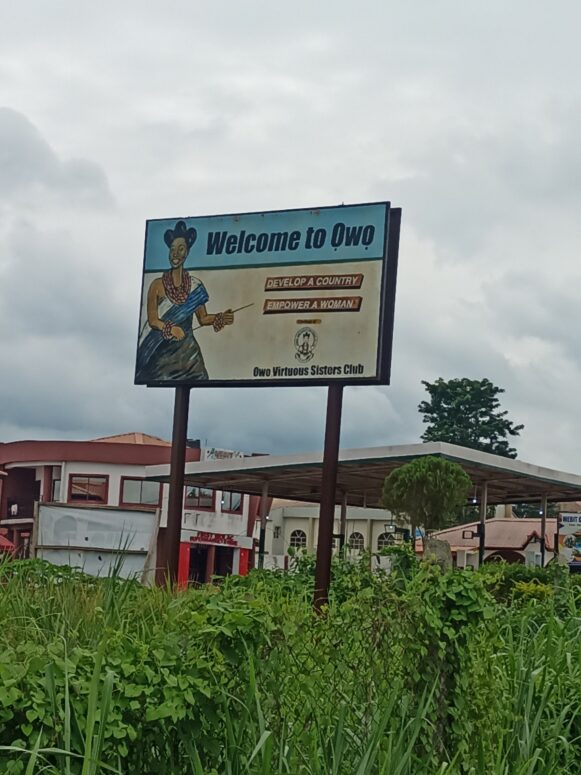
Ola bade me farewell after he learned I had nowhere else to visit. I had taken up most of his time and had to pay him handsomely, ensuring he didn’t regret being with me for most of his working hours. He had been a thorough and patient town guide. And I was glad to have met him. He wanted to wait until I found transportation to Lagos, but I had to wave him along. He had made me feel like a child with his excessive attention to my wellbeing. I was in a central area of Town, and I didn’t think my safety was at risk.
There was no vehicle to Lagos when I got to the park. Drivers parked a few salon cars here and there, but all drivers had refused to go to Lagos because it was dark already, and the Town was still under clouds of fear. No one was willing to risk a night ride that far away. The threats of terror attacks were real to them. I completely understood the stand they had taken.
“Get a ride to Akure.” One of the drivers said to me. “You should be able to see buses going to Ibadan or straight to Lagos from Akure. That’s the best advice I can give you unless you wish to spend the night in Owo. You will spend the whole night here if you are expecting to find a car to Lagos.” I thanked him for his advice and then stood by the roadside, hoping to flag down vehicles heading toward Akure. I spent about forty-five minutes by the road without finding any car speeding towards the state capital. This absence of transportation got me contemplating spending a night in one of the hotels in Town. So, I returned to the man who had advised the Akure trip and asked if I could find cheap lodging in Owo.
“There are many good places you can spend the night in.” The man sounded confident and glad to point me to places of comfort. “You can use Mydas, Chancery, and other good hotels.” He had no idea of the rates but said they were affordable. I told him I would remember the names he had mentioned and then returned to stand by the road. It wasn’t long before a car pulled over by the roadside, and the driver asked if I was heading to Akure. He told me to get in the front seat. Some young men had fully occupied the back seat. I opened the door and sat with another man in the front before telling him I was heading to the state’s capital, but Lagos was my ultimate destination.
The driver said he wouldn’t go beyond Akure but would let me off at a point where I would quickly find buses heading to Ibadan or Lagos. I thanked him and then sat back, resting my tired head on the headrest, my mind heavy with sad images and gloomy voices of survivors of the Pentecost Sunday terror attack at St. Francis Xavier Catholic Church.
We drove for a while before the driver told me I had been fortunate to get a ride from where I stood because most people were cautious about picking travelers off the road ever since the unfortunate attack of June 5 at Owa-luwa Street.
“I can relate completely with their fears,” I said. “But courage is what we need in a time like this.”
“God will protect us always,” the driver prayed.
“Amen,” I said and then sat back for the half hour’s drive.
The driver was especially concerned about the surrounding forest as we rode along. He constantly reminded us that terrorists could be in the woods. I didn’t feel comfortable with the stories he told us. A talkative fellow, he never shut his mouth for more than five minutes. And this made me think perhaps; he was trying to keep himself from falling asleep over the steering wheel. But he had a ready audience in all of us on the ride.
I asked for his direction towards where I would join a vehicle to Lagos since I didn’t know the area well enough. I received assurances that he would let me off at a bus park where many cars were going to Ibadan and Lagos. I slept off along the way and was only awoken by the driver when it was time for me to alight at his chosen destination.
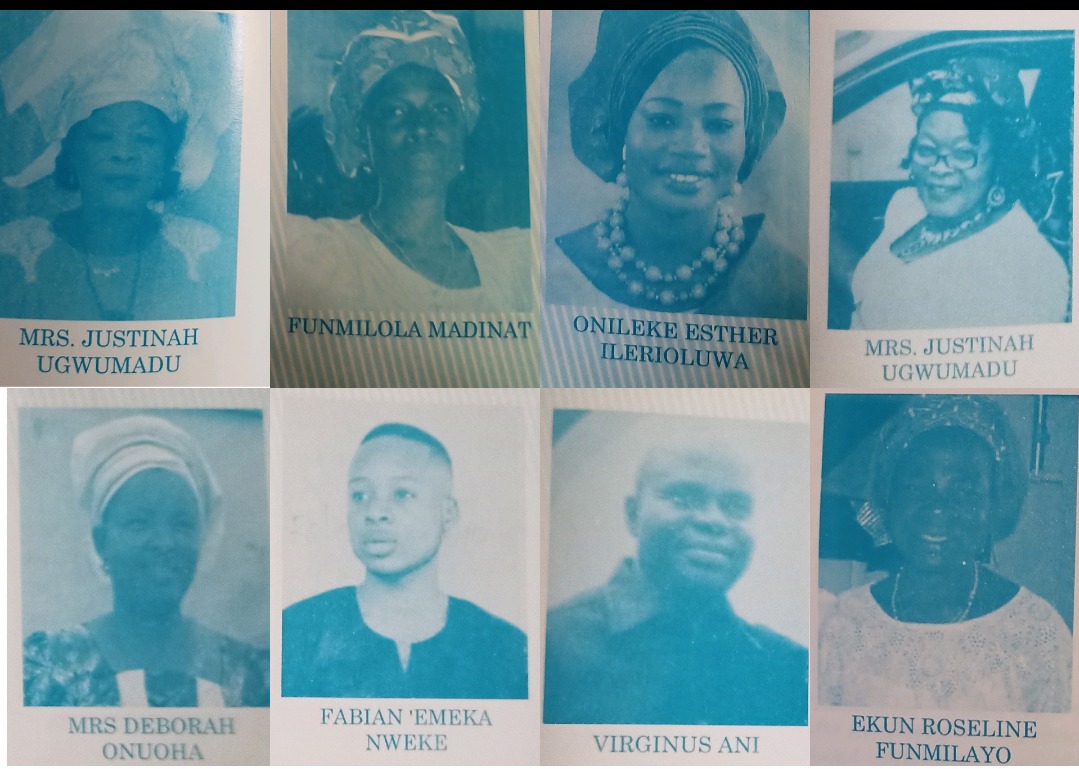
Darkness enveloped the sky, and there was the threat of rain as I stood at the park by the roadside in Akure. Buses were parked discriminately, and no one was willing to hit the road to Ibadan or Lagos. I went from one to another without finding any luck with any of them. I was soon joined at the park by a duo of young men. One carried a big guitar concealed in a leather jacket, while the other had a small saxophone. The wind instrument was also housed in a leather jacket. We soon got into a conversation, and I then learned that they had been returning from a local music concert in Akure and were both heading to Ibadan. We hoped we would get a vehicle to Ibadan but soon got rid of that expectation as the night wore on, and we were still looking for a driver willing to hit the road. The young man with the Saxophone was visibly restless, moving from one end of the park to another, shifting his weight from one foot to the other while he stood, and slapping the air now and again. He kept trying to convince one of the drivers at the park to gather the three of us and get going, promising him that he would pick up more travelers along the way. But the driver said he would only leave if his bus filled up completely. The guy with the guitar suggested we get close to the highway and flag down passing vehicles if we wanted to get out of where we were. I agreed that was a good idea and joined the duo as they walked out of the assembly of stationary buses.
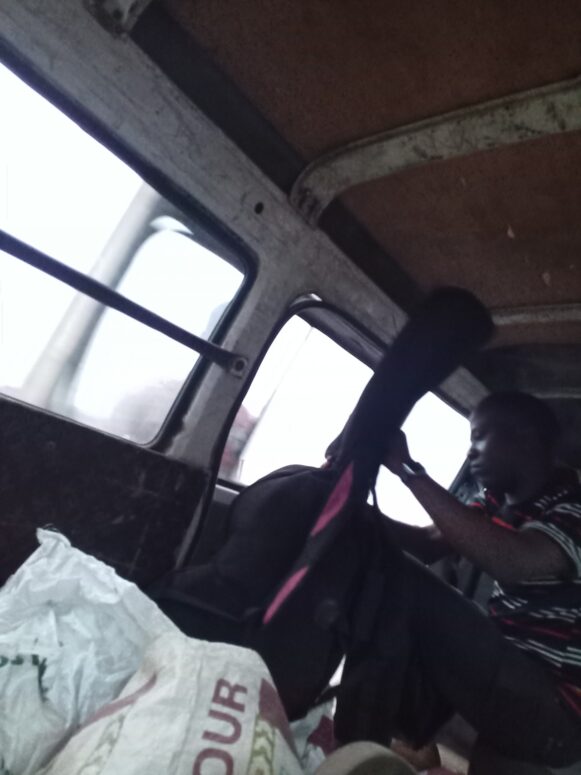
We stood by the roadside for some time but had not gotten any speeding vehicles. The guitar man made another suggestion. He said the passing cars would never pull over close to the park because the local touts were everywhere and would extort illegal fees from drivers. The three of us agreed that we would not get a ride if we remained close to the park. At this point, we all decided to trek ahead to find a vehicle. We went for about twenty minutes and had yet to find a willing bus or car to offer us transportation. But we had no desire to stop and so kept hiking along. The first drops of soft rain soon fell from the sky. I had my worries. My bag wasn’t completely waterproof, and I feared for my laptop. I voiced the concern to my new friends and suggested we seek shelter somewhere close by, hoping the rain would stop completely.
“I think we should just keep walking along,” the guitar man said. “I know this route enough, and we will soon find a bus along the way.”
His partner agreed with him and added that since their instruments were well protected, there was no point in seeking cover from the rain. But I told them the computer was at risk of getting wet, and I wasn’t ready to bet that the rain would stop soon.
“I will hide under the next available shed, I see,” I announced. “It seems the rain is coming down heavier than before.”
The musicians agreed with me. We walked for a while before coming upon an abandoned small booth with many leaks in its old zinc roof. The place smelled of roast meat and oil and burnt firewood. Two of us huddled inside it while the edgy Saxophone guy stood out in the rain, hoping to find a vehicle for the three of us. He waved down several speeding cars, but none stopped for him. He left the rain at some point and briefly joined us in the shelter. He left and returned to stand in the shower after more vehicles began speeding past us. But none was willing to pull over. The saxophone man complained that it was strange we had still not seen a car. He said he hadn’t had it that tough in all his journeys on the Owo-Akure road.
We left the comfort of the kiosk and joined the Saxophone man after the rain subsided. We resumed our walk after some time and only stopped walking after we met a small crowd of boys and girls standing and waiting for vehicles a few meters from S.C.M.A. Church, its many lights illuminating the surrounding area. It was Friday night worship, and worshippers had started arriving at the large Church in trickles. The guitar man joked about us joining the overnight worship if we failed to find a bus to Ibadan. I said it sounded great, but I thought something else would happen.
The crowd around us began to thin out after a while. But it was only a short time before we found a motorcycle willing to carry the three of us towards the FUTA gate, however inconvenient it was to the rider. I implored the brave rider to take it nice and slow since the rain had not stopped completely, and the road was wet and slippery. He assured us that he would be cautious with the ride. He also said we shouldn’t be afraid since he was an expert motorcycle rider!
“Oga, mistakes fit happen any time,” I told him in Pidgin English. “There is nothing like a perfect rider for this rain.”
“You can get down if you want to.” The motorcycle rider said to me. “I am not forcing you to sit down with the others.”
The Saxophone guy told me to bury my fears and let the rider be. It would be a terrible thing to get him upset. I obeyed and then sat quietly, my mind filled with prayers in the dark Akure night and unpredictable rain, which seemed to have resumed with intensity as we hit the road. The rain hit us with biting tiny drops, but there was very little we could do in our circumstances. I was thankful we were heading to a place where I could easily hitch a comfortable ride to Lagos.
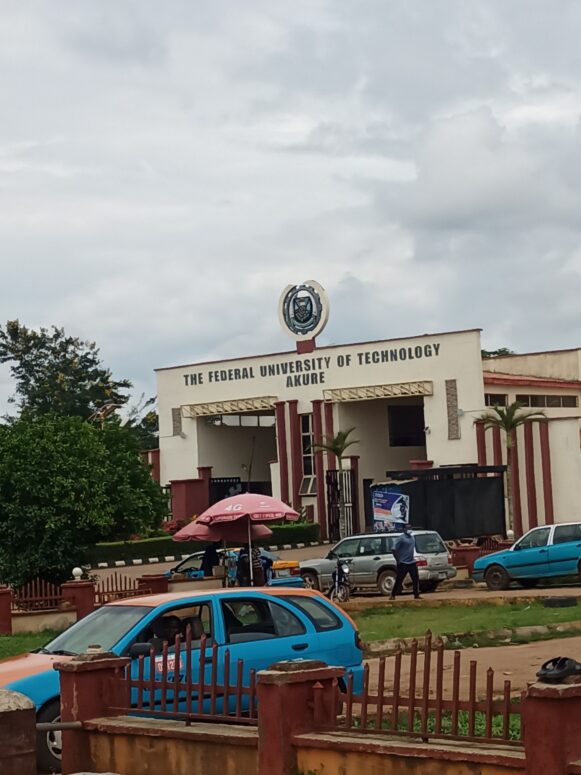
We were relieved to find shelter at a busy fuel station soon after we passed one of FUTA’s gates. The rain had done a fine job of getting us washed down. I was pleased to find warmth beside a table that sold noodles, bread, and tea, where the heat from gas stoves sucked wetness off my body. Its owner was a young black man. I offered him greetings. He responded, and the light nuance in his words suggested that he was from up north. More people fleeing the rain soon joined us under the tea seller’s large canopy. Cold and shivering, I ordered a hot cup of tea from the man behind the table and sipped while replaying some images from earlier in the day. A few voices from the hospital rang unsteadily in my senses as if someone had been in hot pursuit. I was glad the sad notes didn’t linger for too long with me.
The fuel station had closed for the day, but cars were driving in, searching for fuel. Some people taking shelter were heading to Ibadan, and most left and stood by the roadside once the rain subsided. They began flagging down speeding vehicles, asking if they were traveling in the directions they were headed. Few people found spaces in some cars that stopped by, while many didn’t due to the high transport fares charged by the hostile drivers.
Restless as though gas bubbles in a constricted space, the Saxophone man soon joined the travelers by the road, animatedly looking for a car or bus to transport us to Ibadan.
I took out my laptop from the bag in an attempt to be sure that it was still in good condition. I hit the power button, and it came on just as I had expected. A sudden urge rose in me to go through some of the notes I had made earlier in the day. I succumbed to it and then looked at some photos from St. Francis Xavier and the Federal Medical Center. I flipped a few photographs but soon felt tears gathering in the sad corners of my eyes. A chubby black lady at the kiosk had walked over and stood behind my shoulder. She began staring into the screen brazenly. She gasped at a tear-jerking photograph. She talked with me and said she had heard about the Pentecost Sunday massacre. The tears welled up again in my eyes.
“These people truly suffered,” the lady said. “I feel for them.”
I nodded.
“Let’s go.” The Saxophone man called out to me from beside the road. “There is a car heading our way,” he said.
I shot down the computer and joined him.
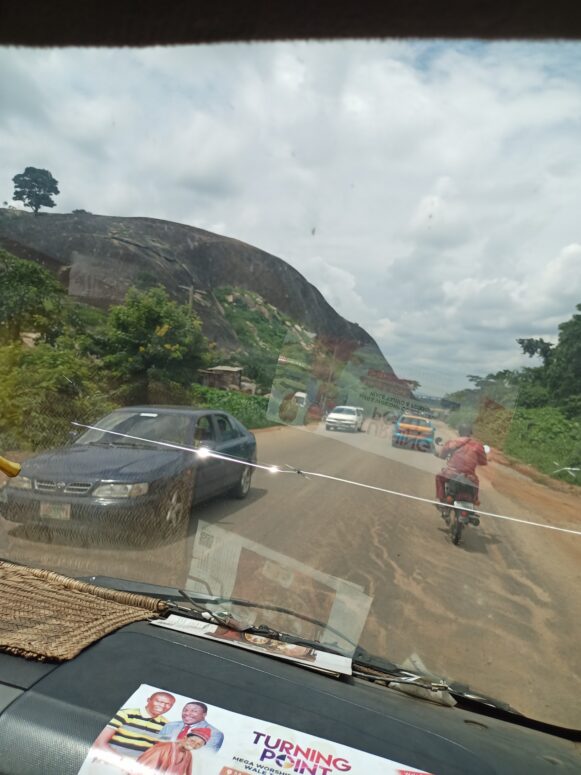
Other Victims
A study of the list of victims shows that some may be related. For instance, Sir and Lady Adesina Ajanaku, Mrs. Deborah Onuoha, Mr. Chukwudi Onuoha, Omolola Monogbe, Monogbe Omolayo John, Umunna Okafor, and Umunna Chisom are listed among dead worshippers. This information is in the booklet “Order of Funeral Mass for the Victims of the Owo Massacre.” The publication, made available during the funeral Mass on June 17, 2022, contains photographs of 31 dead worshippers, while 8 of the deceased have no pictures to their names. The names of 74 patients with varying injuries are also included in the 36-page booklet by the Catholic Diocese of Ondo.
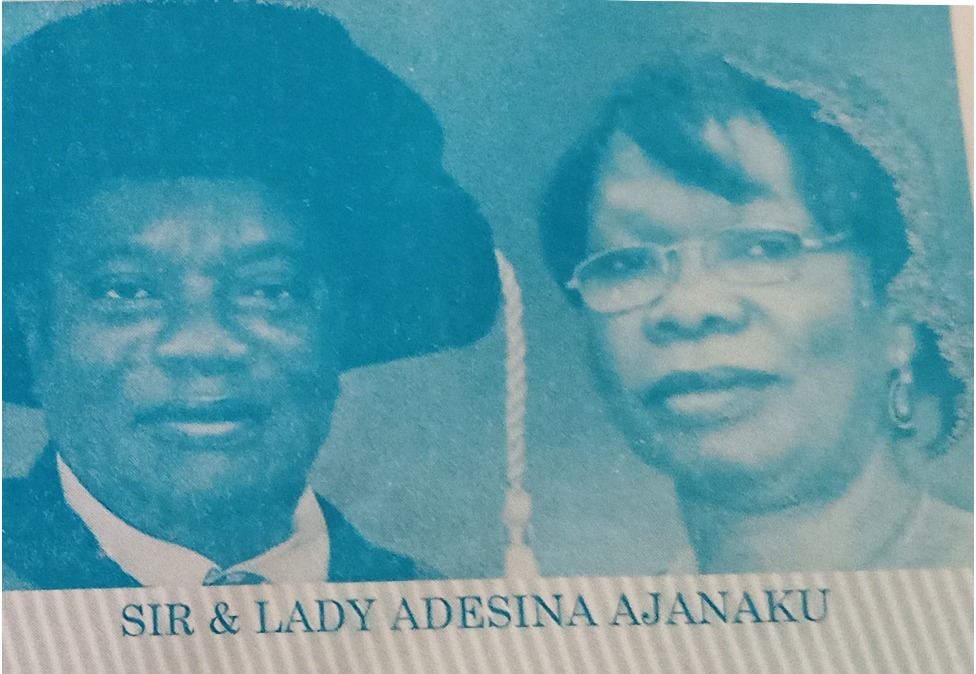
Dead Worshippers
Listed in alphabetical order, those that died on June 5 are:
Anthony Onuyi Ojapah,
Asebioyo Esther,
Bridget Ozulumba,
Caroline Aina Agboola,
Edwin Loveth,
Ekun Roseline Funmilayo,
Eze Chikamso,
Fabian Emeka Nweke,
Funmilola Madinat,
Hen Olowa,
John Bosede Testimony,
Mathilda Ogungbade,
Miss Ani Chidiogo,
Monogbe Omolayo John,
Mr. Chukwudi Onuoha,
Mr. Obuche Augustine Kurumale,
Mrs. Deborah Onuoha,
Mrs. Justinah Ugwumadu,
Mrs. Christiana Oladepe Olajide.
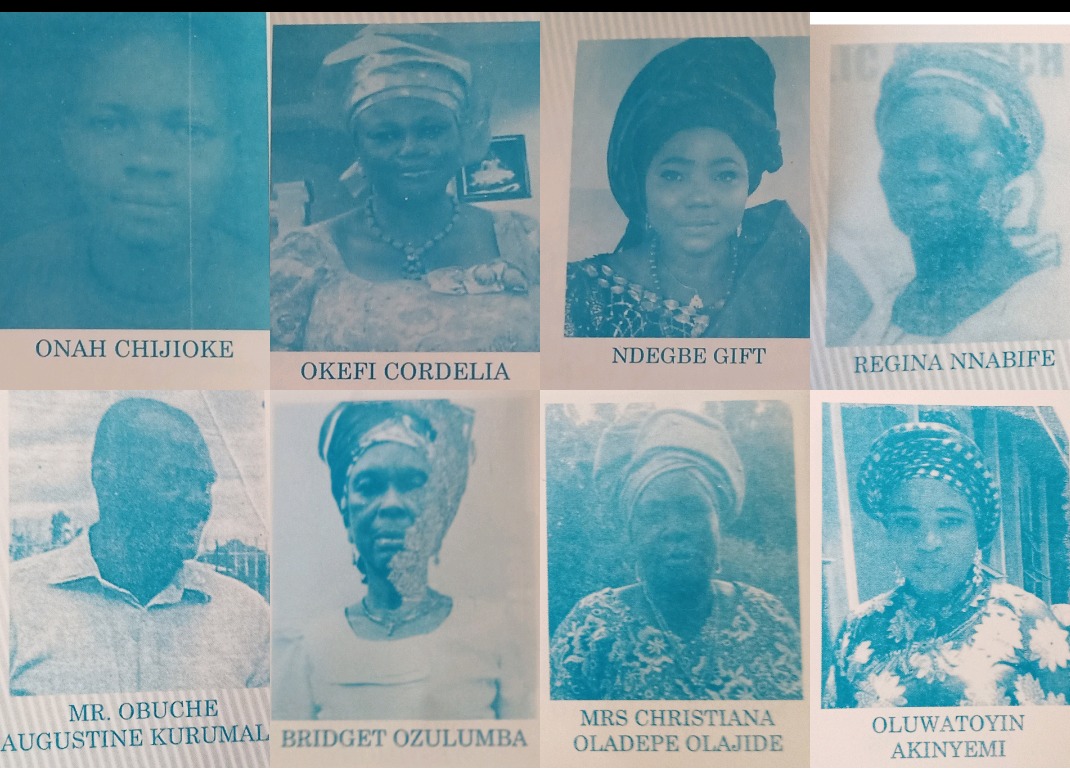
The list also includes:
Mrs. Justinah Ugwumadu
Ndegbe Gift
Njoku Emmanuel Chukwuemeka
Okefi Cordelia
Oluchukwu Evaristus
Oluwatoyin Akinyemi
Omolola Monogbe
Onah Chijioke
Others are:
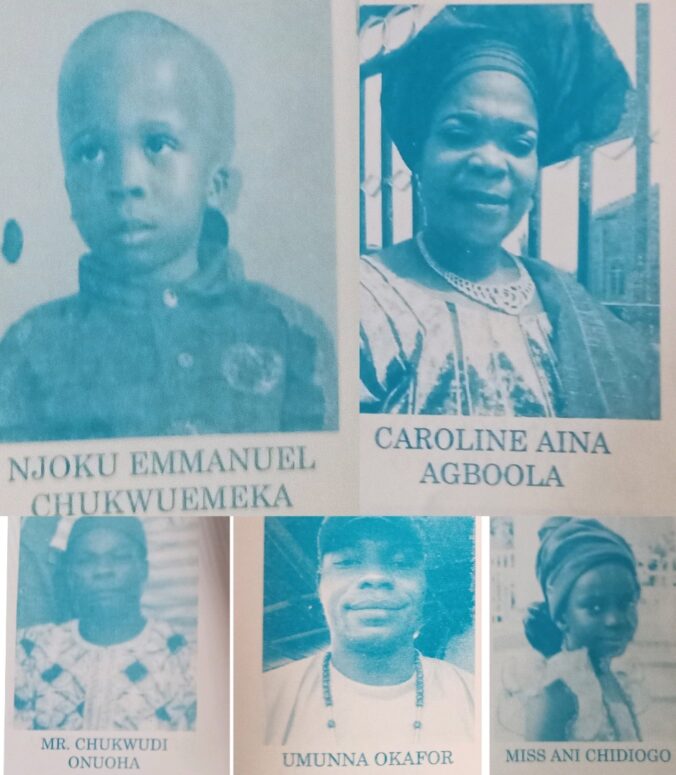
Onileke Esther Ilerioluwa
Onyebuchi Onyeka
Regina Nnabife
Sir & Lady Adesina Ajanaku
Sunday Mary
Theresa Ogbu
Timothy Ugwu
Ugwummadu Ekene
Umunna Chisom
Umunna Okafor
Virginus Ani
Injured Worshippers
This list also repeats some surnames, indicating that some survivors may be related. But I couldn’t ascertain that possibility. The following people sustained “varying degrees of injuries:”
Adenawo Abel
Adesuluka Olayinka
Adetunji Henry
Agunbiade Ayomide
Ajah Theresa
Alex Michael
Aloma Leonard Chibuike
Amunuwa Gloria
Arinze Ngbara
Asogwa Benjamin
Asogwa Jacintha
Attah Margaret
Attah Victoria
Chuba Elizabeth
Edeh Ebuka
Egelonu Josephine
Eze Chukwudi
Eze Ifunaya Mariam
Eze Maryjane
Eze Miracle Kelechi
Ezekigbo Chiamaka
Ezekigbo Obinna
Others worshippers with injuries are:
Idoko Ufoma
Irenoa Anthony
Iwu Elizabeth
Iwu Ifeanyi
John Blessing
John Glory
Njokwu Charity
Nnakwe Paschaline
Nnamani Camillus
Nselu Stella
Nweke Daniel
Obateru Ayodele Samuel
Obika Mary
Odoh Chukwuemeka
Ofere Joseph
Ogbonna Success
Ogohegbunam Theophine
Ogungbade Maximilian
Ogungbade Vivian
Ojapah Faustina
Ojukwu Chinedu
Okafor Michael
Okorie Faith
Okoye Stephen
Okundalaye Esther
Oladele Christiana
Oladele Jumoke
Olisa Victor
Onah Chioma
Oni Folake
Onileke Ayodele
The parishioners in the list below were also injured in the church attack.
Onileke Benedict
Onoja Helen
Onuchukwu Happiness
Oranuba Titus
Osuji Isaac
Ozochukwu Angela
Ozurumba Benjamin
Salau Bade
Salau Bamidele
Sunday Precious
Sunday Vincent
Tochukwu Chidera
Udeh Augustine
Udeh Festus
Udeh Monica
Ugwu Cletus
Ugwu Raphael
Ugwumadu Frances
Ugwumadu Wilfred
Uzeadu David
Uzeadu Maureen
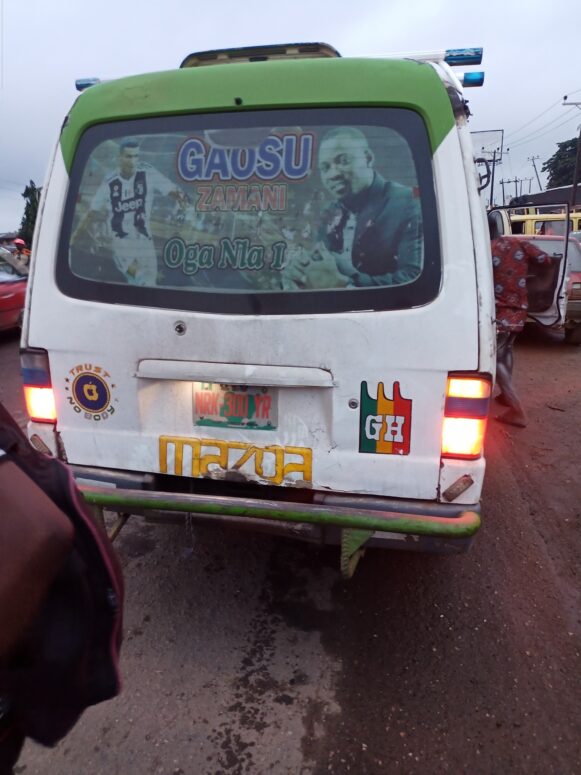
The people above are not the only victims of the shootings. It is uncharitable to see them as such. Owo town, the Church, and humanity are victims of a massacre. That was the overriding feeling residing in me as I left Owo town, a massive scar from the attack of June 5, 2022, on its face.
*Images by Steve Ogah, Aliu Focus, and Catholic Diocese of Ondo.

